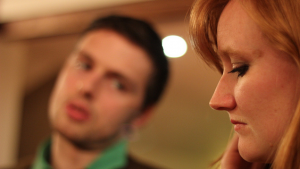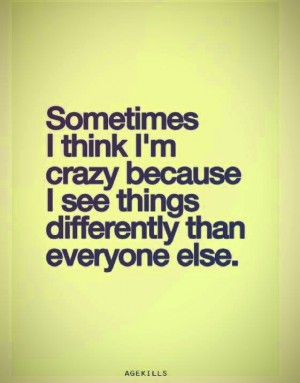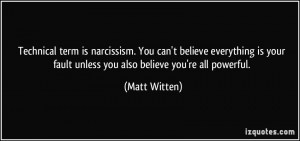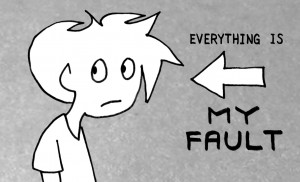 One of the things I learned in Landmark, ((in the year long Relationship Course,)) is that there is physical development, and there is emotional, ethical, moral development each person needs to go through to become a fully functioning adult.
One of the things I learned in Landmark, ((in the year long Relationship Course,)) is that there is physical development, and there is emotional, ethical, moral development each person needs to go through to become a fully functioning adult.
It was brand new information to me and it blew my mind.
It was new to me in spite of the fact that I was educated, having read thousands of books… even about child psychiatry, and yet, it was an earth shattering revelation to me.
I, like other people, thought that children were born with the capacity to understand why certain things are harmful, etc.
I’d thought that the inability to comprehend and appreciate responsibility for your own actions, for example, was not inability, instead it was unwillingness. Ability as programmed by the genes wasn’t becoming clear to me until about 13 years later.
Responsibility is an attitude, not a fact. You cannot be made responsible, but you can take responsibility on. You can be blamed, punished for, ostracized for things, but responsibility is an attitude of taking it on, willingly, because it belongs to you.
As children, our survival depends on the well-being of our parents, so seeing them suffer, cry, yell, feels like a direct threat to survival, for a child.



 Add this to the child’s way of viewing the world, where he she is in the center, always. Result: you get children who feel guilty for their parents’ troubles, as if they had caused them themselves.
Add this to the child’s way of viewing the world, where he she is in the center, always. Result: you get children who feel guilty for their parents’ troubles, as if they had caused them themselves.
Add to this the unconscious guilt over aggressive thoughts and feelings… and you have a guilty child, a child who will probably never grows up to a full functioning adult…
If you got stuck on this level of psychological development, life with others became pretty unbearable: anything anyone feels seems to blame you.
And your loved ones use it to emotionally blackmail you… everything is your fault, that’s how it feels.
I remember crucial episodes from my childhood… I didn’t reach emotional maturity until I was in my 50’s. Until then, every woman felt like a domineering mother, every man felt like a distant father, and I was rebelling against them while secretly begging for their love.
What set me free was a sentence from the Relationship Course. It went like this:
You live in a world of your own design.
Meaning: me and everyone else live in a world of our own design. Our worlds don’t overlap: we are not even in the same play.
You say what you say to me… but it has nothing to do with the real me, what I said, what I meant. I am just a character in your play, always doing the same horrible or nice things that you hate of love… but not what I am actually doing. I know only one thing: I am in a game where I don’t know the rules.
We can be sitting at a table, just the two of us, talking, and yet we are not talking to each other.
Until I internalized that sentence: “You live in a world of your own design” I had clashes with people, or I had conversations that deeply impressed me, and left no mark on them. ((It still happens, about once or twice a year. I have been diligently removing people who can’t see me at all, for whom I am ONLY a character in their play, and not a person.))
I found that people hearing nasty things from me, hear nasty things that fit their world, fit a character in their play, but not me. I am not nasty.
The person who uses me that way can’t even see me. They are not even interested who I really am, they don’t even know they could be interested… that would presuppose that they don’t already know, exactly, who I am…
But I am not that. It’s a character in their play… not me.
There is not much contact between people and people… because people live an a world of their own design… much like living in a bubble.
You are supposed to play a character in their play… and when you don’t, when you refuse, they get upset. You can test it: when you normally get upset… don’t… they will be disoriented.
You would expect them to wake up, but no, they don’t… they make up an interpretation for your unexpected action that makes sense inside their play.
Until people get that they don’t even see or hear the other person… because “you live in a world of your own design” they can’t even consider getting curious or paying attention, let alone listening.
Will you be able to internalize this and break for freedom yourself?
Doubtful, but possible. According to my experience, in my Relationship Course, I was the only person who got it. 0.25%.
What do you need to have in place to get it?
Humility, the capacity to take yourself out of the way.
Empathy: the ability to be interested in another’s world
Compassion: the ability to see the other’s suffering as painful
Owning, ownership: the capacity that is underneath of taking responsibility, not blame.
and optionally the ability to bilocate: be able to see the world from two distinct points: from behind your eyeballs and from the outside, at the same time.
The secret ingredient to a good life, to successfully living, is changeability. And changeability is another word for humility.
Without humility you are frozen into the world of your own design… thinking that that is the world. Without humility you are unable to adjust, unable to change, unable to thrive.
Read the original article: What do I know that you don’t, that I don’t often get upset? In spite of my peppery constitution…